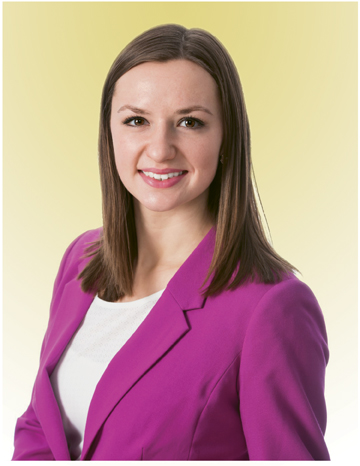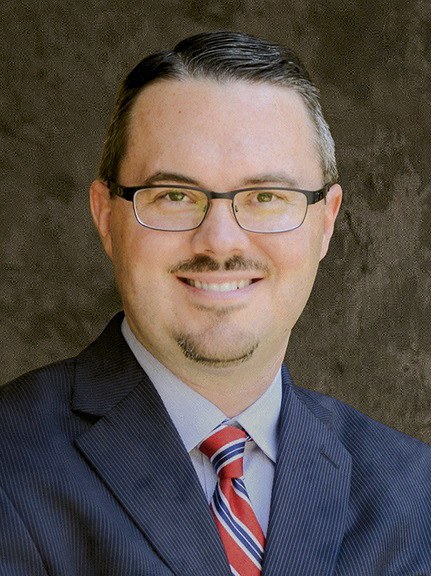AAH, THE ACRONYMS: CRM—NOT COUNTRY ROCK MUSICIANS

Hop in the truck—let’s discuss the Certified Risk Manager designation
Once again, I could be wrong with my alternative acronym. There just might be some insurance professionals who are country rock musicians. Let me know if you know any. So put some Alabama on the boombox and put your boots on; we’ll start with our recap paragraph because this is how we roll.
For over two decades, The National Alliance for Insurance Education & Research has provided risk management education with the Certified Risk Manager (CRM) program. The five courses offered in the program are: Principles of Risk Management, Analysis of Risk, Control of Risk, Financing of Risk, and Practice of Risk Management.
The designation can be earned by completing all five courses and passing the corresponding exams within five years after finishing—and passing—the first course. The classes can be completed in either a traditional classroom setting—each course is two and a half days of instruction, followed by the exam—or in an instructor-led online classroom, which includes two weekly webinars for five weeks.
Derek Rogers, CRM, a sales executive at Shepherd Insurance’s Greenfield, Indiana, location, earned risk management and insurance and business administration degrees from Ball State University; he completed his CRM designation in 2016.
“Ball State’s Risk Management and Insurance program requires you to take the Principles of Risk Management and Control of Risk courses as part of the degree’s requirements,” says Rogers. “These courses were taught by Ball State professors within the Risk Management and Insurance Department. After graduation, I took some time off from continuing the designation while beginning my career at Shepherd Insurance. I began taking the courses again in 2014, completing one course a year in 2014, 2015 and 2016 respectively.”

“There are multiple ways of achieving the designation, so try outthe different platforms and see for yourself which is the best for you.”
—Leah Lupu, AINS, CAWC, CRM, CIC
Producer
Duclos Insurance Agency
Leah Lupu, AINS, CAWC, CRM, CIC, a producer at Duclos Insurance Agency in Saginaw, Michigan, completed her designation in 2017 and, like Rogers, began taking CRM courses while still in school.
“I started the designation in 2015 during my senior year at Olivet College through The National Alliance’s University Program,” says Lupu. “During my fall semester I was able to complete the Principles of Insurance and Control of Risk modules. By passing these two, I achieved the University Associate Certified Risk Manager (UACRM) designation, leaving me to complete the remaining modules after graduation.”
Lupu also enrolled in and passed the Life and Health and Agency Management courses toward her Certified Insurance Counselor (CIC) designation through the University Program, earning the University Associate Certified Insurance Counselor (UACIC) designation.
“After I started my professional career after college graduation, I enrolled in modules to complete my CRM and CIC,” Lupu continues. “Upon graduating high school I had attained the Associate in General Insurance (AINS) designation, and I finished the Certified Authority on Workers’ Compensation (CAWC) designation during my final semester at Olivet.”
Lupu’s insurance career began the summer after high school at Michigan Farm Bureau in Lansing; she worked there the summer after her freshman year as well. She completed internships during college in the commercial underwriting department at EMC Insurance Companies in Lansing and Gibson Insurance in South Bend, Indiana. (We spoke with Gibson Insurance in the September 2015 issue of Rough Notes on recruiting through universities, and Leah was mentioned in that Young Professionals feature; she was an intern at the time). After graduating, Lupu was hired as a commercial insurance producer at Gibson and recently relocated to Michigan for her current position.
Marc McNulty, CIC, CRM, vice president of insurance operations at The Uhl Agency in Dayton, Ohio (you may recognize his name as our Mind the Gap columnist), studied political science and Russian studies at the University of Dayton before finding himself in the insurance industry.

“Most of our accounts aren’t large enough to employ a professional risk manager; however, I can bring knowledge and processes to them that professional risk managers employ.”
—Marc McNulty, CIC, CRM
Vice President of Insurance Operations
The Uhl Agency
“I briefly—and I mean very briefly—worked for an agency in 2001 that focused on senior products such as Medicare supplements and annuities; however, I realized that it wasn’t going to be a good fit for me,” says McNulty. “Shortly thereafter I got hired at The Uhl Agency as their operations manager. Over the years I have been promoted to assistant vice president and then vice president of insurance operations.
“I obtained my CIC designation in 2008 and in 2011 decided to complete my annual CIC update by taking a CRM course. Five years later I earned my CRM designation. I took each of my courses in person; I prefer that setting so I can have better access to the instructor and potentially ask questions during the class or during breaks. I traveled to Indianapolis for each of my CRM courses and took one course a year; that way I was killing two birds with one stone by completing my annual CIC update while also completing another course toward my CRM designation.”
Benefits and advice
Like the designations previously discussed in this series, the CRM has a number of benefits.
“It’s given me more confidence when I work with new and existing accounts,” explains McNulty. “Most of our accounts aren’t large enough to employ a professional risk manager; however, I can bring knowledge and processes to them that professional risk managers employ.”
Adds Lupu: “The CRM designation has allowed me to become a better advisor to my clients. As a Certified Risk Manager, I am able to help clients and prospects identify the risks they face as business owners and help them develop strategies to address those risks.
“Going through the courses to achieve the CRM designation was also a great advancement of my bachelor’s degree in insurance and risk management. I truly believe I have had success as a young professional with the skills I learned through those courses.”
“The CRM designation allows an insurance agent to view risk from the client’s perspective,” adds Rogers. “The Financing of Risk course highlighted factors that agents, clients, and prospects alike should consider while developing the appropriate insurance program for a company. This has allowed me to better connect with risk management personnel during the insurance purchasing process.”
Are you contemplating earning your CRM designation?
“I would absolutely encourage new insurance professionals to obtain any designation,” says Rogers. “It continues professional growth and development and can also give you a leg up on competitors by introducing topics covered during the courses to prospective clients. Continuing your education also keeps you sharp and constantly improving your insurance knowledge.”
Adds McNulty: “Unless they work for a risk management firm, I’d suggest new professionals who are working as producers complete the CIC program first and gain a solid understanding of the types of insurance coverage that are in the marketplace. It’s difficult to have a high-level conversation with a business owner if you aren’t familiar with insurance policies and/or coverages that are specific to their type of business, and you wouldn’t be able to properly assist them with deciding how to address areas of concern through risk avoidance or transfer.
“That having been said, I highly recommend the CRM program because there is a good chance you’ll write more business than your competition when you’re armed with more knowledge than them.”
“As a new insurance professional, the CRM designation is a great way to differentiate yourself,” says Lupu. “While other agents will be addressing risk with the purchase and placement of insurance policies, you will be advising your clients that they have multiple options for addressing risk, with insurance policies being only one of many choices.
“Take one class at a time and customize the program to fit your learning style. If you like the classroom setting, you can take all the modules in person with an instructor. I preferred to take my modules via webinar over the course of multiple weeks. There are multiple ways of achieving the designation, so try out the different platforms and see for yourself which is the best for you.”

“The teachers draw from their experiences to give real world examples of the topic being discussed, allowing me to practice the topic in real world situations.”
—Derek Rogers, CRM
Sales Executive
Shepherd Insurance
Summing up
Whether you take CRM courses in a classroom or online, don’t start thinking the process will be a “free and easy down the road I go” stroll.
“It was a challenge to say the least, as the overall practice of risk management wasn’t something I used on a regular basis,” says McNulty. “Sure, our agency uses insurance as a way of financing risk but, as I quickly found out while earning my designation, insurance is only one small part of the risk management process.
“Prior to starting the program, my risk management experience stemmed from a few larger commercial accounts we write that use a professional risk manager. I found it interesting how insurance coverage was analyzed—and in some cases questioned—against the exposures our clients faced.
“Now that I’ve completed the program, I look at commercial lines accounts from a different perspective. Sure, I work at an independent agency and insurance is the majority of what we do, but now I can speak with clients and prospects about risk avoidance, risk transfer, and in some cases self-insuring risks, in an effort to help them achieve a better bottom line.”
“Over the course of my first year as a full-time professional, I completed five National Alliance modules, all of them containing topics that addressed situations I was facing every day as a commercial insurance producer,” says Lupu. “The CRM courses put you in the mindset of a risk manager working for a business instead of as an insurance agent. Being able to make this mentality shift allowed me to avoid using the insurance industry vernacular that often loses others in conversation. Having the knowledge from the CRM courses helps prepare you to ask the questions that identify what is important to your client and guides you to create different strategies that are unique to the needs of each customer.”
“I’ve learned a number of things going through the CRM program,” adds Rogers. “First and foremost, teachers for the courses have always been extremely accomplished. The teachers draw from their experiences to give real-world examples of the topic being discussed, allowing me to practice the topic in real-world situations.”
This wraps up the latest installment in our designation series. There’s only one more left, but there’ll be no teardrops tonight. Until next time, when we play it again.
For more information:
The National Alliance for Insurance Education & Research
www.scic.com
By Christopher W. Cook











